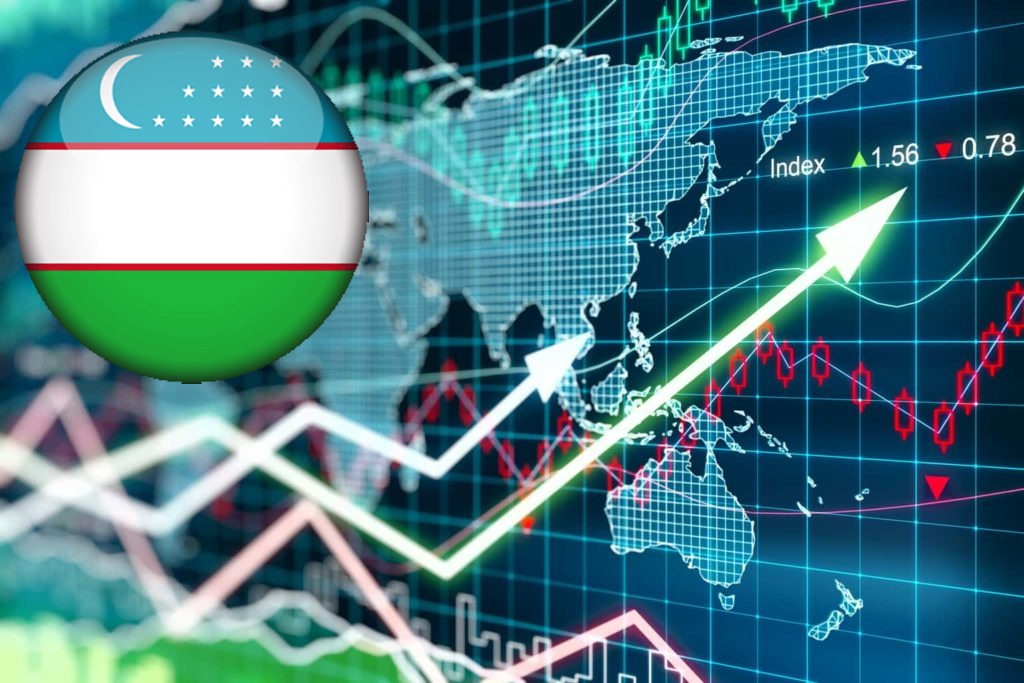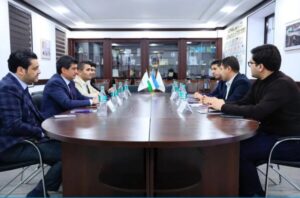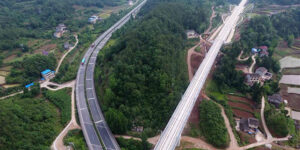Recent Developments in Uzbekistan Investment Landscape

Uzbekistan has become center for modern businessmen and businesswomen from all over the world. Uzbekistan’s role in regional integration and cooperation, particularly, has increased its attractiveness since the initiative attempts to offer a platform for cross-border trade and budgets. Uzbekistan promises to become the beacon of opportunity that investors across the world look for as the country’s infrastructure commercializes.
Uzbekistan has begun on a revolutionary path to revitalize its economy and increase its appeal to global investors through considerable economic changes, notably the liberalization of investment rules and considerable investments in infrastructure development. These measures highlight Uzbekistan’s commitment to creating a favorable climate for both local and foreign investment, therefore supporting long-term growth and prosperity throughout the country.
One of the most significant steps Uzbekistan has taken is to expand the allowable amount of foreign ownership in a variety of industries, from manufacturing to services, giving foreign investors a larger interest in the country’s economic progress. By liberalizing foreign ownership regulations, Uzbekistan hopes to attract a broader range of investors, increase competition, and promote innovation, eventually promoting long-term economic growth.
An increase in foreign investment
Notable is the country’s leadership focus on directing capital flows in key industries. The focus is on directing investments towards a list of projects that have already been preapproved and are mostly focused on exports. This strategy is demonstrated in the National Investment Program for 2023–2025, which shows the government’s deliberate approach to economic growth with over seven hundred projects totaling $55 billion.
Foreign direct investment (FDI) to Uzbekistan increased significantly, hitting $1.5 billion in 2021, indicating rising investor confidence. This encouraging development has undoubtedly been made possible by the corporate environment. The Investments Promotion Agency’s services are advantageous to foreign investors as well. It offers a variety of services, such as analysis, company registration, consultancy, and legal support, and fulfils the objectives of national development.
The labour market advantages in Uzbekistan
Low-cost labour is available in the nation for international businesses, which boosts competitiveness in important industries. To strengthen the workforce, the government is now focusing on several projects aimed at developing skills and creating jobs.
The Uzbek government has taken a proactive step by granting more benefits to international investors, especially those in the IT industry. A series of incentives, such as lower taxes and the granting of IT visas, were introduced in 2022. The streamlined possibilities for extensions and residence permits that accompany these visas provide a welcoming atmosphere for highly qualified workers. Uzbekistan’s dedication to fostering an open and welcoming investment climate is demonstrated by its industry-specific incentives, expedited registration procedures, and legislative initiatives. Given the swiftly expanding economy
Uzbekistan has initiated a comprehensive infrastructure-building program along with its liberalization initiatives, acknowledging the indispensable function of resilient infrastructure in promoting economic expansion and competitiveness. With an emphasis on updating current infrastructure and constructing new facilities to satisfy the changing demands of its economy, the nation has committed significant resources to infrastructure projects encompassing transportation, energy, telecommunications, and urban development.
A specific area of attention has been transportation infrastructure, with investments meant to increase domestic and regional road, rail, and aviation connections. Uzbekistan has enormous potential as a regional logistics hub. Improving trade flows, enabling the movement of people and commodities, and centering regional logistics.
Furthermore, to satisfy rising demand and diversify its energy sources, Uzbekistan has made investments in energy infrastructure a top priority. The nation has abundant renewable energy potential and natural gas reserves, and investments in energy infrastructure are focused on increasing capacity, enhancing efficiency, and advancing sustainability. In line with international efforts to mitigate climate change, these investments not only improve energy security but also open up prospects for private investment in renewable energy projects. IT Park is a specialized platform that provides specialized services for anyone interested in exploring the rapidly growing field of information technology.
Investments in digital infrastructure, mobile technologies, and broadband networks are creating new opportunities for entrepreneurship, innovation, and economic diversification, establishing Uzbekistan as a dynamic. In addition, Uzbekistan has made energy infrastructure, entrepreneurship, and economic diversification top priorities, establishing the country as a prominent participant in the digital economy.
The progressive privatization of state-owned businesses (SOEs) is at the heart of Uzbekistan’s economic reform plan. The goal of Uzbekistan’s privatization program is to attract private investment into formerly state-monopolized industries, promote competition, and increase economic growth. The current push towards privatization offers attractive prospects for private investors to engage in several industries, including manufacturing, telecommunications, energy, and utilities, and encourages entrepreneurship and inventiveness.
Opportunities for investment in Uzbekistan
Large international investors find Uzbekistan to be a desirable location because of its friendly regulatory environment. Due to its diverse economy, Uzbekistan offers a wide range of investment possibilities in important industries. Investment opportunities are created by the nation’s strategic initiatives, which are backed by the National Investment Program, ranging from energy to technology and agriculture to urban development.
a. Natural resources and energy
Minerals and natural gas are among the many natural resources that Uzbekistan has in abundance. RES efforts are the focus of exploration and extraction projects in the energy industry. A significant amount of funding is set aside for energy-related projects in the National Investment Program 2023–2025, which reflects the sector’s strategic significance.
b. Agribusiness and agriculture
Due to its rich agricultural history and lush terrain, Uzbekistan is a major producer of cotton and other agricultural goods. Investment potential includes innovative farming technology, irrigation system upgrades, and agribusiness companies.
c. Industry and manufacturing
Uzbekistan’s GDP is significantly influenced by the industrial sector, which primarily produces equipment, automobiles, and textiles. The growth of export-oriented sectors, the introduction of cutting-edge technology, and the expansion of manufacturing facilities are the main investment opportunities. GM Uzbekistan is a cooperative partnership with General Motors, a well-known name in the motor industry.
d. Innovation and technology
Uzbekistan is making quick progress in the technology industry, emphasizing innovation and digital transformation. The growth of technology parks and increased assistance for start-ups have led to an increase in investments in IT infrastructure. For instance, Tashkent’s cutting-edge IT park draws multinational IT firms.
e. Logistics and transportation
Because of its advantageous position, Uzbekistan serves as a major transportation hub for the development of infrastructure for logistics in Central Asia and the extension and upgrading of transportation networks. The national railway firm, Uzbek Railways, is an important player in the transportation industry. The National Program supports the government’s goal of improved connectivity by providing significant funding for logistics and transportation initiatives.
f. Real estate and urban development
To create sustainable cities, the government is active in urban development efforts. The capital-intensive urban development project in Tashkent City is an example of the dedication to upgrading cities. Investors stand to gain from the government’s emphasis on developing livable and sustainable metropolitan areas.
Uzbekistan presents itself as a viable location for investors seeking long-term profits in dynamic and expanding economic sectors, as seen by the global brands already making their mark there.


